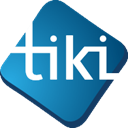The Best Refinery CMS Alternatives for Your Next Project
Refinery CMS, a popular Ruby on Rails content management system, has been a reliable choice for many developers and businesses due to its extendability and adherence to 'the Rails way'. However, as project requirements evolve or different technology stacks come into play, users often seek out a Refinery CMS alternative that better suits their specific needs. Whether you're looking for different features, a simpler setup, or a different underlying technology, there are numerous powerful CMS options available.
Top Refinery CMS Alternatives
Finding the perfect content management system can significantly impact your development workflow and the success of your web project. Below, we explore some of the leading alternatives to Refinery CMS, highlighting their unique strengths and why they might be the right fit for you.

WordPress
WordPress is an immensely popular open-source platform, widely recognized for its versatility in creating websites, blogs, and even applications. As a Refinery CMS alternative, WordPress offers a freemium model with extensive customization options through plugins and themes, making it suitable for a broad range of projects. It supports various platforms including Mac, Windows, Linux, Web, Android, iPhone, and is self-hostable with PHP. Its robust features like blogging, e-commerce integration, and multi-site management make it a strong contender for those needing a feature-rich, adaptable CMS.

Ghost
Ghost is an open-source platform specifically designed for building and running modern online publications. For those looking for a blogging-focused Refinery CMS alternative, Ghost stands out with its intuitive interface and excellent Markdown support. It's a commercial yet open-source solution, available on Mac, Windows, Linux, and can be self-hosted. Powered by Node.JS, Ghost is ideal for journalists, bloggers, and magazines seeking a streamlined publishing experience.

Drupal
Drupal is a powerful, free, and open-source content management framework that allows users to easily publish, manage, and organize a wide variety of content. As a more robust Refinery CMS alternative, Drupal is known for its modular system, extensive customization capabilities, and support for multiple languages. It's a self-hosted PHP-based platform, making it a strong choice for complex web applications and enterprise-level websites that require high flexibility and scalability.

Joomla
Joomla is an award-winning free and open-source content management system, perfect for building dynamic websites and powerful online applications. Similar to Refinery CMS in its extensibility, Joomla offers a wide array of modules and features, including e-commerce capabilities. It is a self-hosted PHP solution, providing a solid foundation for various web projects, from simple corporate sites to complex web applications.

Grav
Grav is an easy-to-use, yet powerful, open-source CMS that distinguishes itself by requiring no database. This 'flat-file CMS' approach makes installation incredibly simple (just unzip the file), and it's known for its speed. As a Refinery CMS alternative, Grav offers features like Markdown support, Twig Templating, and extensibility through plugins, all running on PHP. It's an excellent choice for those seeking a fast, lightweight, and modern CMS without database overhead.

ProcessWire
ProcessWire is a friendly and powerful open-source CMS and CMF (Content Management Framework) built on a strong foundation. This self-hosted PHP solution is a great Refinery CMS alternative for developers who need extreme flexibility and a robust API. It features custom data fields, custom templates, front-end live editing, and headless CMS capabilities, making it ideal for unique and complex web development projects requiring precise content control.

Tiki Wiki CMS Groupware
Tiki Wiki CMS Groupware is a full-featured, web-based, multilingual, all-in-one Wiki+CMS+Groupware that is Free Source Software (GNU/LGPL). For those needing a comprehensive Refinery CMS alternative that integrates a wide range of collaboration and management tools, Tiki Wiki is a strong option. It supports Mac, Windows, Linux, and is self-hosted on PHP, offering features like bug reporting, CRM, forums, file management, and workflow capabilities, making it suitable for intricate group collaboration and knowledge management.

MODX
MODX is a free and open-source Digital Experience Platform that provides complete control over creative designs, hosting, and maintenance of websites. As a Refinery CMS alternative, MODX focuses on empowering developers and designers with maximum flexibility. It is a self-hosted PHP solution with strong blogging and publishing features, making it a great choice for those who want a powerful CMS without creative limitations.

concrete5
Concrete5 is a free and open-source CMS known for its in-context editing experience, which benefits both developers and site owners. For those seeking a user-friendly Refinery CMS alternative that offers intuitive content management directly on the page, concrete5 is an excellent choice. It is a self-hosted web-based platform that provides a balanced approach to site building and content management.

django CMS
Django CMS is an Enterprise CMS built with Django, representing one of the most active open-source projects in the Django ecosystem. If you're looking for a Refinery CMS alternative that leverages Python and the Django framework, this is a prime candidate. It's a free, open-source, self-hosted solution available on Mac, Windows, Linux, and Web, featuring drag-and-drop content editing, dynamic content capabilities, multi-language support, and strong SEO tools, making it ideal for large-scale and complex web applications.
Choosing the right CMS ultimately depends on your project's specific requirements, team expertise, and desired features. By exploring these Refinery CMS alternatives, you can find a platform that aligns perfectly with your goals, ensuring a smooth development process and a successful online presence.